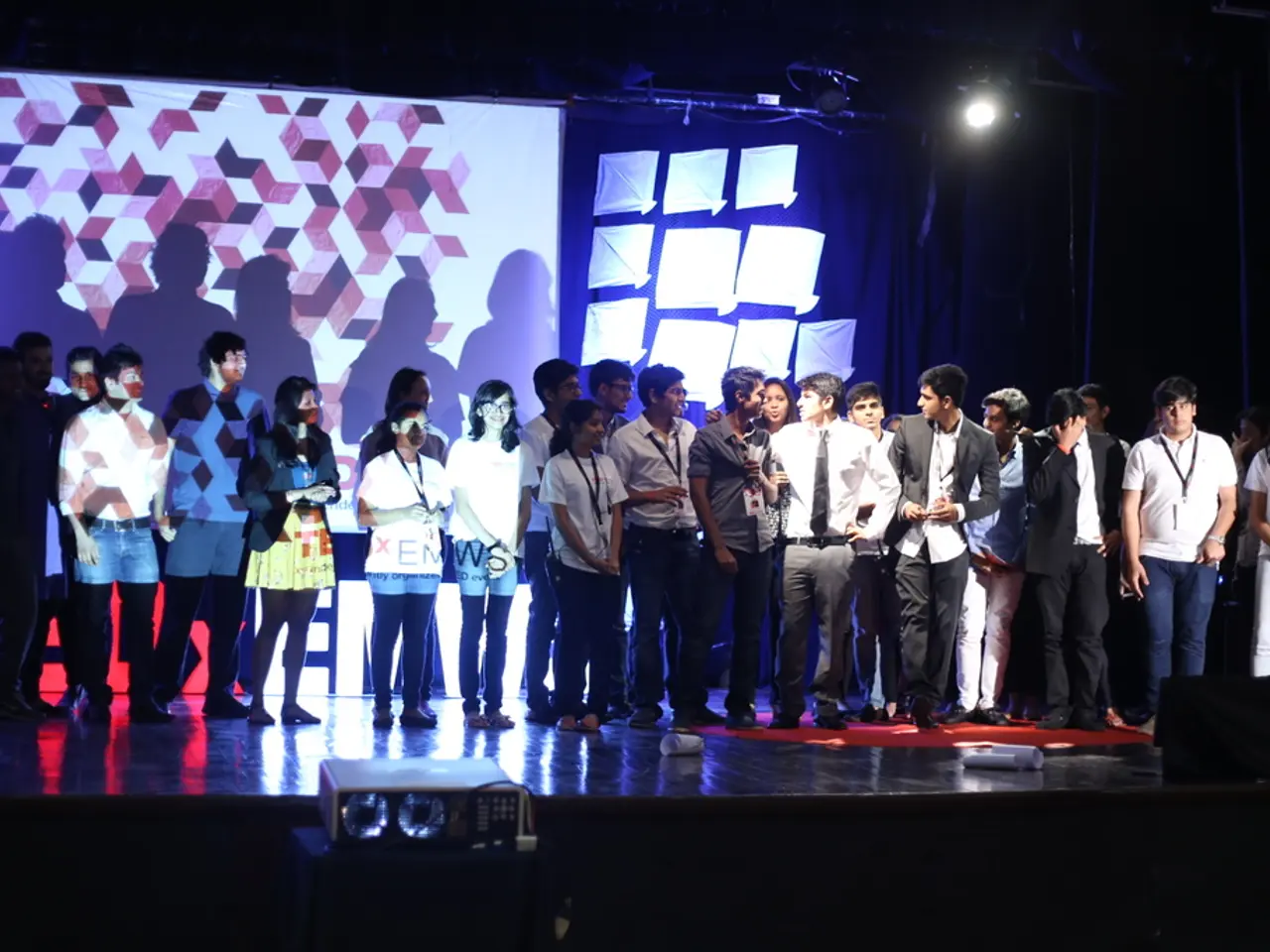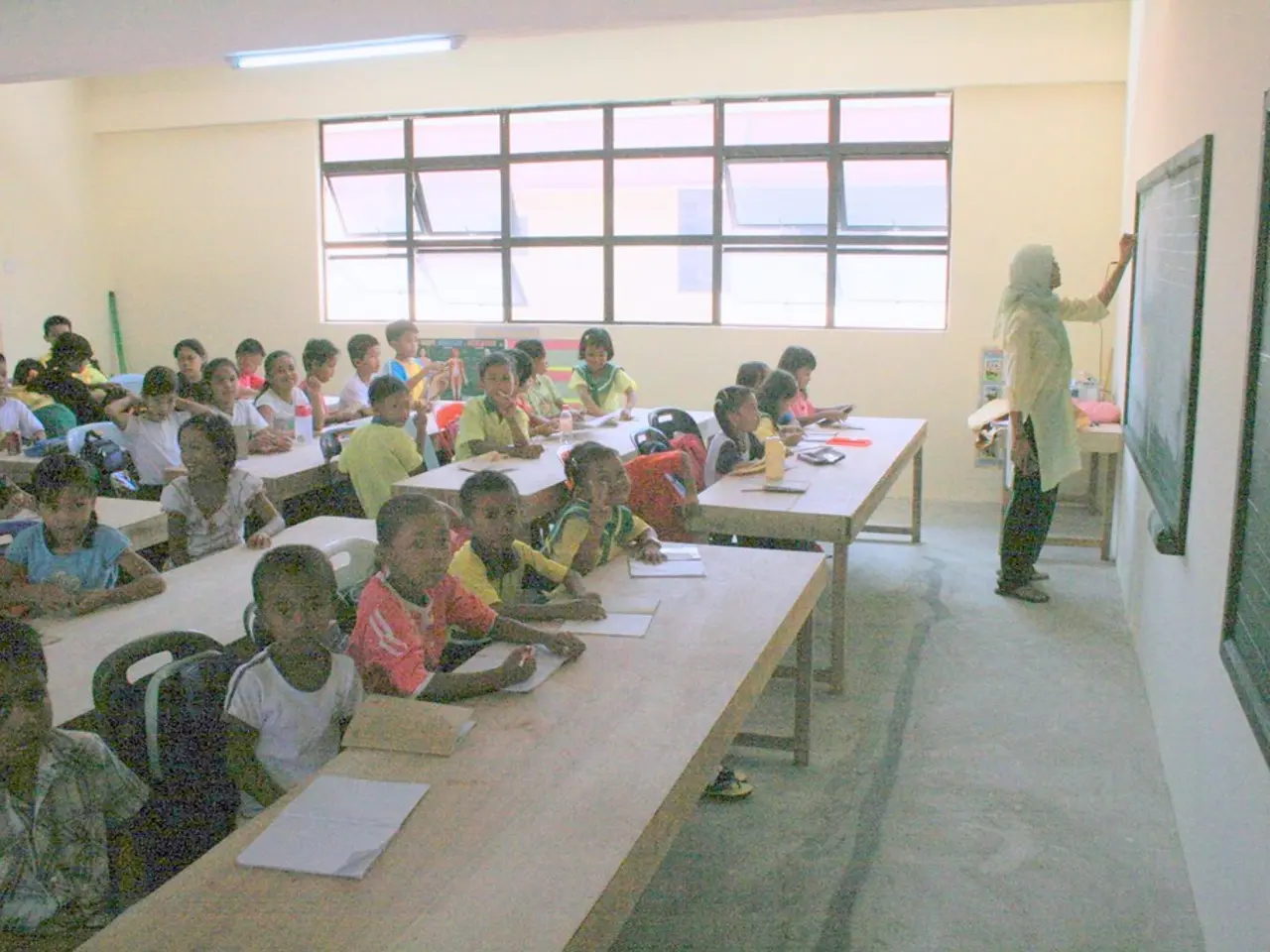Exploring the Team Endeavor in International Baccalaureate Theatre Production
The Collaborative Project in IB Theatre is a significant part of the curriculum, focusing on teamwork, collective creation, and the development of key skills. This project, which contributes between 20% and 30% of the overall grade, is an exciting opportunity for students to showcase their research, creativity, and collaborative abilities.
The Collaborative Journey
The Collaborative Project begins with Planning and Research. Students form groups of 2 to 6 members and select a stimulus or area of inquiry related to theatre practice. They collaboratively plan roles, responsibilities, and timelines, setting the foundation for their project.
Next comes Creation and Development, where students work together to create a theatre piece or product, employing skills such as acting, directing, design, or dramaturgy. This stage emphasizes the importance of practice, adaptability, and continuous development.
Rehearsal and Refinement follow, as students reflect on and refine their work based on feedback, critical evaluation, and personal reflection. This stage is crucial for polishing the final product and ensuring a cohesive performance.
Finally, the project culminates in a Presentation and Documentation phase. The group presents their original piece to an audience, often accompanied by a process journal or portfolio detailing their collaborative process and artistic decisions.
Assessment Criteria
The Collaborative Project is assessed based on artistic intention and concept, collaboration and contribution, exploration and development, performance and presentation, and reflective analysis. Key factors evaluated include:
- Collaboration: How effectively students work together, share responsibility, and communicate.
- Research and Inquiry: Depth of research underpinning the project.
- Artistic Creation: Creativity, originality, and technical skill in the final product.
- Reflection and Evaluation: Quality of reflection on the collaborative process, challenges, and learning.
Tips for Success
To ensure a successful Collaborative Project, follow these tips:
- Clear Communication: Establish open and honest communication channels among all group members.
- Defined Roles and Responsibilities: Assign specific roles to manage tasks efficiently.
- Regular Planning and Review Meetings: Keep the project on track by regularly reviewing progress and addressing issues.
- Balanced Participation: Encourage equal contribution to foster ownership and motivation.
- Use of a Process Journal: Document ideas, decisions, and reflections consistently.
- Constructive Feedback: Create an environment where feedback is welcomed and used to improve.
- Flexibility and Problem Solving: Be willing to adapt plans and collaboratively solve challenges as they arise.
- Focus on Learning and Growth: Emphasize skill development and collaborative learning over just the final product.
Enhance Your Learning Experience
To excel in your Collaborative Project, sign up for RevisionDojo. This platform offers curriculum-specific study tools tailored for IB Theatre, including question banks, flashcards, and study notes powered by Jojo AI. With RevisionDojo, you can take your IB Theatre learning experience to the next level.
Remember, the Collaborative Project in IB Theatre is more than just a performance—it's a journey of creativity, collaboration, and personal growth. So, dive in, collaborate, and create!
[1]: Source 1 [2]: Source 2 [3]: Source 3 (If applicable)
The Collaborative Project experience can be further enriched by utilizing online resources like RevisionDojo's study tools, featuring question banks, flashcards, and notes. [1]
For a comprehensive approach to learning, incorporating a question bank into your study routine can help reinforce key concepts and stimulate critical thinking. [2]
Flashcards can be a valuable asset in solidifying knowledge and allowing for easy, efficient study of essential information, particularly when it comes to education-and-self-development subjects like online-learning and learning. [3]




